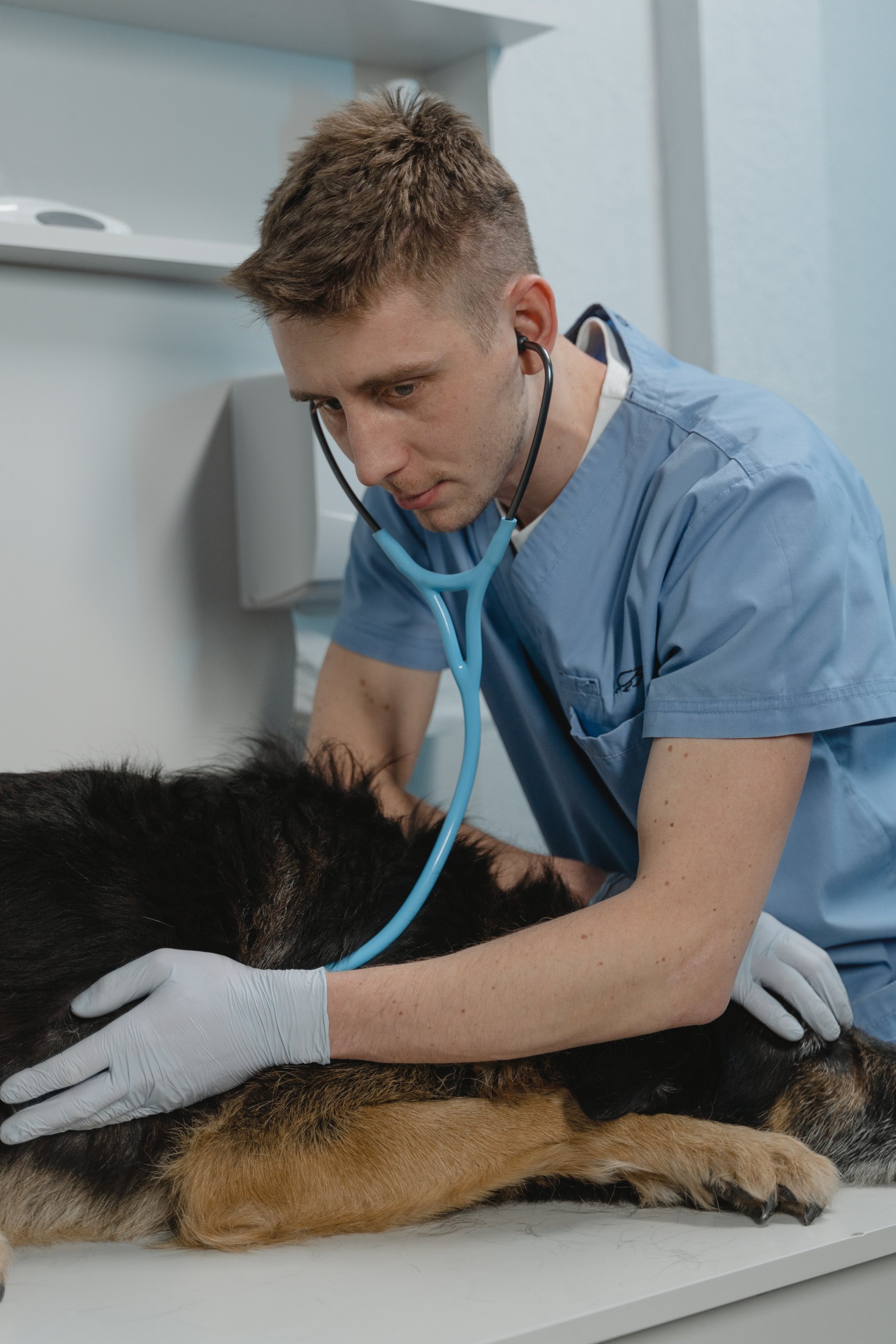Advice on puppy first aid
There are a number of professional courses which you can take to learn more about dog first aid. Whether you're considering getting your first puppy, or you're an experienced dog owner, it's worth considering learning more.
We’ve put together some handy tips, guides, and advice to try to help your pet in need.
Please note that even though dog first aid can sometimes help your pet, it should never be thought of as a substitute for veterinary care.
Make sure you’re prepared for the unexpected
Prep work for emergencies can make a huge difference for your pet while you wait for specialist care from a vet.
-
Always keep your veterinary surgeries number handy
Whether you’re out on walks with your pet or in your home, you should always the emeregency contact number for your veterinary surgery handy.
If you’re looking to go away with your pet on holiday, always do your research before travelling.
Knowing local emergency vet contact numbers and having them to hand can make a huge difference.
Protect your puppy with pet insurance
-
Dog first aid packs
Having important pet first aid items together helps you provide immediate care. Many people will put together a specialist dog first aid kit and keep it in their bags or cars so that they can give immediate first aid where appropriate.
Items to include in your first-aid packages:
1. Wipes with antiseptic properties (please make sure they are pet friendly)
2. Foil blankets to keep them warm
3. Bandages, dressings, tape and scissors with a blunt tip
4. Cotton wool and something dog-friendly to wash their wounds
5. Tweezers (both regular and tick ones)
-
Know what to do in an emergency
It’s important to stay cool and collected in a pet emergency. I know it’s easier said than done but keeping a level head will make sure you do the important steps and will help keep your pet calmer.
The first steps are to make sure you’re safe to give your pet first aid. Always consult a vet before moving your pet if possible.
Next, you’ll need to check:
- Is your dog responding to you?
- Are their airways clear? Are they breathing normally?
- Check your dog’s pulse
- Contact your emergency vet for help
-
Learn to recognise the most common signs
Many of the most common dog emergencies share similar symptoms, so it’s important to pay attention to your dog’s behaviour and appearance so that you can convey them to your vet.
The most common pet accidents or emergencies:
- Poisoning (what can dogs not eat? and garden poisons to watch out for)
- Choking
- Shock
- Heatstroke (keeping puppies safe in the sun)
- Burns or hypothermia (read our easy winter tips)
- Wounds/broken bones
You can read more in our puppy guide on general health and wellbeing.
Remember – act quickly and calmly.
Always contact your vet, even if the accident or emergency seems to have passed.
Your vet will advise you further if they need to do an examination of your dog in person.
Read more expert puppy guides